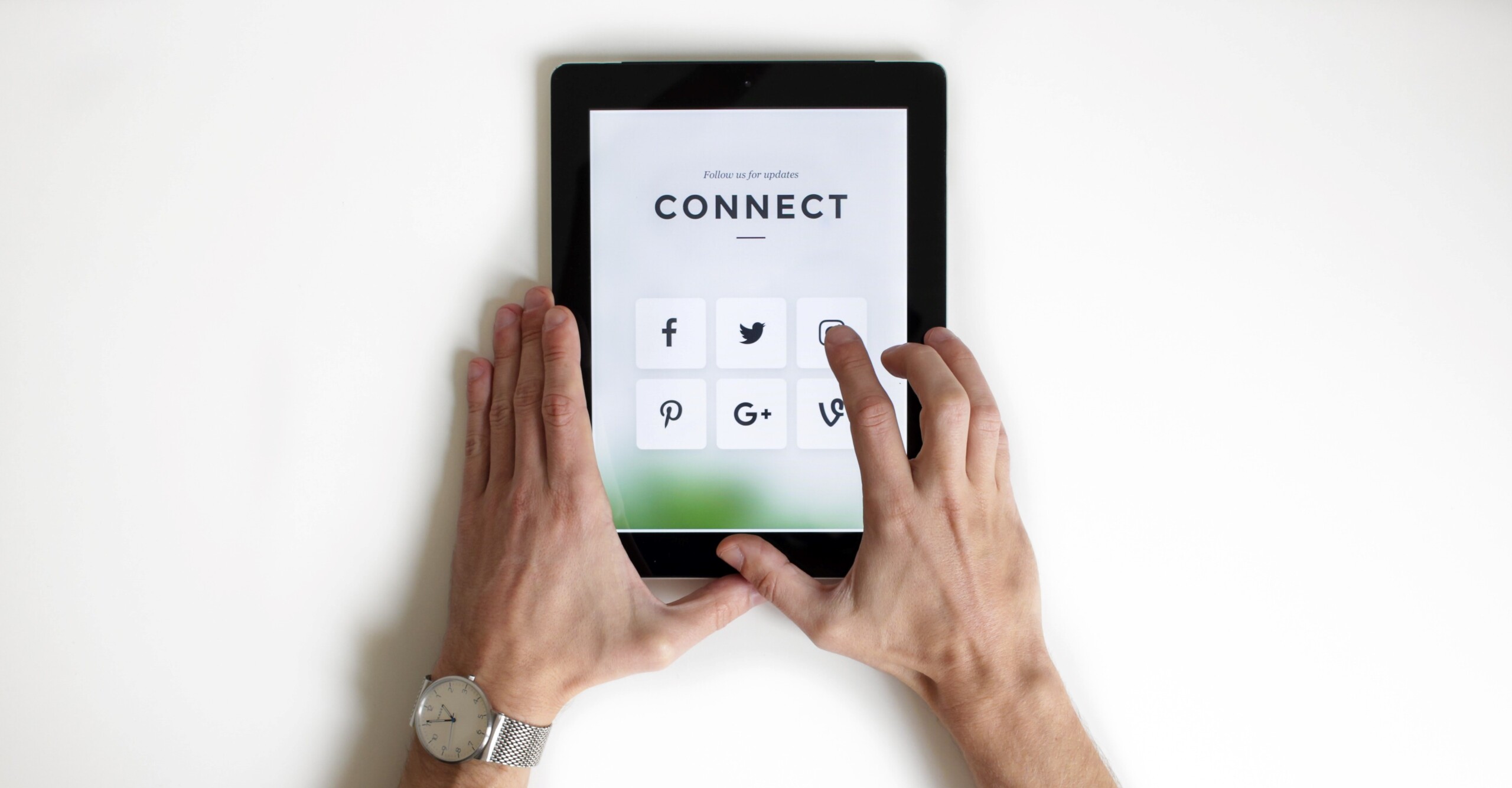
How to use Social Media for Affiliate Marketing in 2025
Discover expert strategies for leveraging Facebook, Instagram, Twitter, Pinterest, and Snapchat to boost your affiliate marketing in 2025. Learn how to optimize...

Explore the best social media platforms for affiliate marketers, including Facebook, Instagram, YouTube, Pinterest, and LinkedIn, to maximize your reach, boost sales, and grow your business.
The impact of social media on our day to day lives is immense – and businesses know that by using social media they can boost sales, help raise brand awareness, and drive traffic or conversions.
As an affiliate marketer, this is not something that you want to miss out on. You need to be active on social media every single day to promote your vendor’s products and services. After all, reaching almost half of the world’s population (45% to be exact) may not be possible on other communication channels, but it is on social media.
However, the challenge with social media is that there are many platforms to choose from. Which networks are worth your time, and which should you stay away from?
Today we’re going to break a few things down for you.
First, we’ll pinpoint what to verify before you start your affiliate marketing efforts on social media. Then, we’ll take each social media platform under a magnifying glass and evaluate the niches they could be most successful for.
Business is business, which is why you should put your personal preferences aside.
If you like Instagram and know how it works, it might turn out to be your perfect platform for affiliate marketing promotion. If there’s no match between Instagram and your audience or product though, you should steer clear.
Ask yourself a few questions:
Be honest with your answers, as they may indicate the direction you should take on social media.
Let’s say that your potential clients are mainly active on Facebook and Instagram, but you don’t have much experience using the latter. It may be best for you to start with Facebook, then add Instagram to your affiliate marketing strategy later.
If you want to stand out from the crowd and improve the reach and visibility of your affiliate business on social media, you may want to consider creating an app. Many enterprises are investing profoundly in social media app development and integration to avail the of unprecedented benefits. The process requires careful planning and research to ensure that critical features are present while offering users an easy interface they will appreciate using.
You’ll find more info about which social media platforms to use below, with explanations about what cases they can work best for.
Facebook is often regarded as one of the best platforms for affiliate marketers. First of all, this network offers many possibilities for organic, unpaid promotion.
Facebook allows affiliate managers to tweak their messages elsewhere – in many cases, for free. Also, there are many post types you can use for your affiliate activities, since text, photos, and videos can be combined in various forms.
There are (at least) four levels on which you can use Facebook for affiliate marketing:
Facebook provides detailed options for reaching recurring clients and potential new customers with paid campaigns. You can even tag products in shoppable posts to enable hassle-free checkouts for your customers. If they haven’t finished purchasing, you can retarget them with remarketing ads.
You can use Facebook regardless of your niche, but there’s something to beware of. You should thoroughly read the Advertising Policy, which indicates the sectors that promotion can be restricted for. While this mostly applies to paid content, it can also impact your organic activities.
Instagram is gaining popularity not only among youngsters. Actually, according to Statista, 33% of Instagram users are aged 25-34, and 16% are aged 35-44.
Instagram usually works best for B2C industries from niches such as beauty, fashion, cosmetics, travel, and food.
Instagram is a platform that mainly supports sharing photo and video content. Affiliate marketers need to understand the nature of this channel to adapt it to their own strategies. Bear in mind that your audience usually won’t have a lot of time to get familiar with your content, since they tend to have a lot to catch up with on Instagram.
You can use the following content to attract your audience:
Posting standalone content is not enough, however. You still may need to boost it with some paid ads to increase its reach. You also have to interact with your potential clients on Instagram.
YouTube requires affiliate marketing managers to create videos. That’s why it’s often skipped by affiliates who have no time or resources to make, publish, and promote videos.
However, videos can be extremely beneficial. The numbers speak for themselves:
YouTube may be the best social media platform for affiliate marketers who resell software, publish tutorials, or conduct Q&A video sessions. It’s also useful for affiliates promoting beauty products (check out giveaways and unboxing videos on YouTube to see what we mean.) There are thousands of people who consume such content, and many of them would be potentially interested in watching your videos too.
Additionally, the bright side of creating videos for YouTube is that you can re-use them. Publish them on other social media channels, your landing page, or include them in your email communication.
Pinterest requires a time investment to make it pay off, but it can bring extraordinary results if done right, especially when considering how to use Pinterest for affiliate marketing.
For many, Pinterest is nothing more than a site with mobile phone wallpapers and home decor inspirations. However, it has one asset that not many other social media platforms offer: its positioning on Google.
Whatever your potential audience is looking for on Google, chances are pretty high that Pinterest will be one of the first results of an image search. If you spend some time organizing your Pins into collections and describing them in detail, you may see your very first results very soon.
Pinterest is ideal for both B2C and B2B products and services.
Pinterest can be a perfect fit for B2B if you focus on long-term activities. By sharing infographics, promotional materials, whitepapers, or checklists, affiliates can attract the attention of B2B buyers and drive traffic to their websites, which may increase sales as a result.
This platform makes the perfect environment for affiliate marketers who work in the B2B industry.
Since LinkedIn’s audience is full of C-levels and decision-makers, it’s easy to reach them through this network. This “ease” can make it tricky though, as your affiliate marketing promotion and outreach have to be very sensitive.
In case you decide to use the latest tools to get emails from your LinkedIn connections, make sure they are verified. Otherwise, you may end up with a really low success rate and be considered a spammer.
You can build your position on LinkedIn via:
Linkedin can significantly help affiliates build a great network and boost affiliate revenue. However, spammy pitches and hard-selling are a no-no on this platform.
There are, of course, many more platforms that might grab your attention. Let us list just a few platforms that didn’t make the top 5:
Social media offers endless possibilities for affiliate marketers. After all, these platforms connect billions of people from all around the world! The sooner you identify the best social media platforms and start using them for affiliate promotion, the sooner you can achieve success. You may also get to know your target audience even better, allowing you to draw some conclusions that can be applied to your overall strategy.
Good luck!
Yes, you can be an affiliate on Instagram by joining affiliate programs and promoting products or services through your account.
Top platforms for affiliate marketing include Facebook for universal reach, Instagram for B2C niches, YouTube for video content, Pinterest for both B2C and B2B, and LinkedIn for B2B campaigns.
Lucia is a talented content editor who ensures the seamless publication of content across multiple platforms.
Discover how to select, optimize, and leverage the top social media platforms to expand your affiliate reach and drive more conversions.
Discover expert strategies for leveraging Facebook, Instagram, Twitter, Pinterest, and Snapchat to boost your affiliate marketing in 2025. Learn how to optimize...
What do you need to do to find new Twitter followers or promote your affiliate blog? We answer these (and more) questions in the article.
Discover 5 essential tips to increase your chances of being accepted by affiliate networks. Learn how to polish your website, choose relevant programs, and subm...






